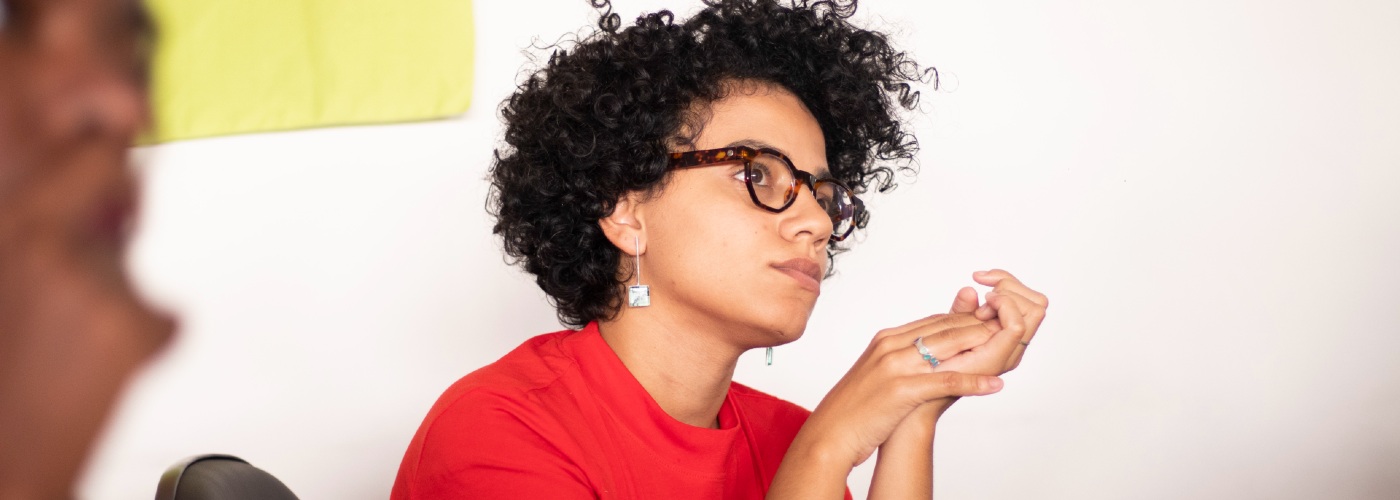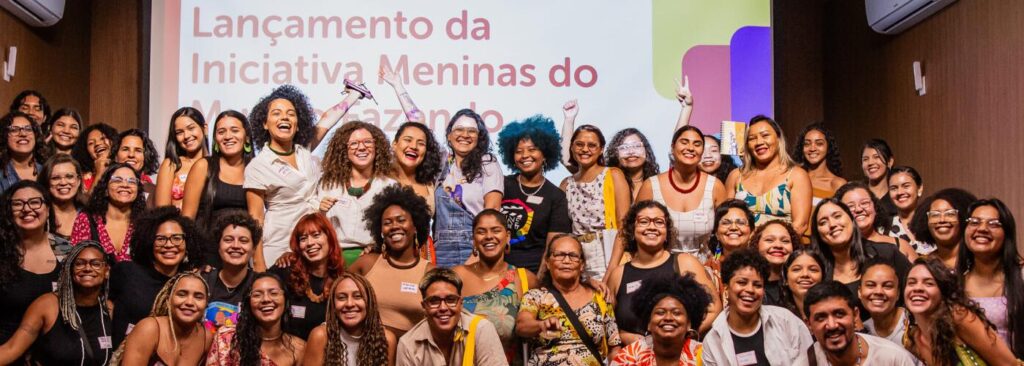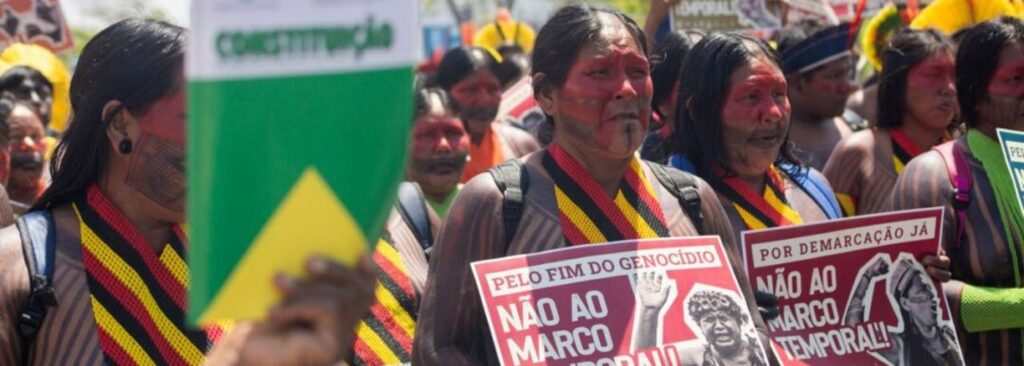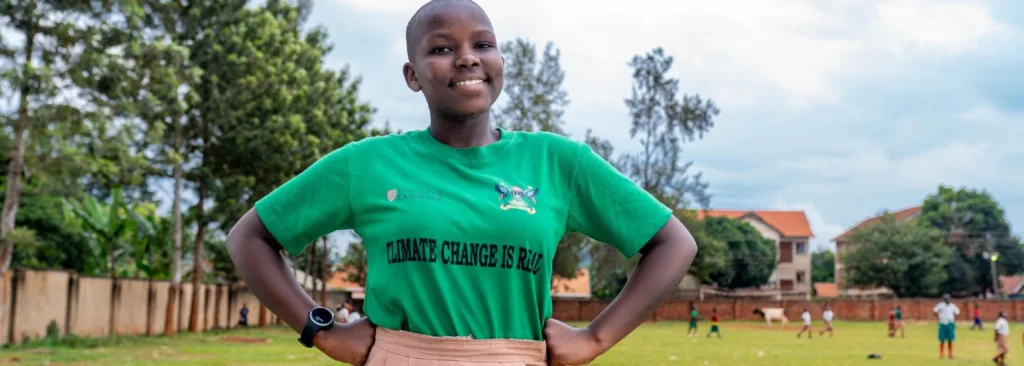Thaís Santos, program manager for Hivos in Brazil, shared her journey from a socially conscious university student to a leader in the Global Girls Creating Change program (G2C2). G2C2 aims to amplify the voices and actions of girls in the fight for climate justice. Talking to her, we got a glimpse of the passion and dedication that drive her mission to create a more just world.
Thaís’ journey to activism
Thaís’ activism began as a student at the University of São Paulo, where she was struck by the stark socio-economic disparities between her and her peers. “I come from a family that doesn’t have much money,” she explained. “Despite being public and free, the university felt quite exclusive because lots of the students were from affluent families. This kind of privilege even at a public institution showed me the systemic inequalities in Brazilian society.” This was the spark that lit her desire to “do something for the world” through social sciences – and activism.
Thaís began by participating in social projects for Black students and joining the fight for university admission quotas for minorities. Then she got deeply involved in the movements for the rights of Afro-descendants and Black women in Brazil. This shaped her understanding of and commitment to human rights and social justice. “After struggling to understand why a prestigious university like São Paulo was without an affirmative action policy for Black people, I started to learn more about how the social movements of Afro-descendant populations in Brazil were fighting against racial inequalities, but also social, gender, educational and other inequalities” she noted.
Bridging human rights and climate justice
Thaís’ activism naturally extended to climate justice as she recognized the interconnectedness of social and environmental issues. Growing up in Brazil, she had witnessed firsthand the devastating effects of climate change on vulnerable communities, such as yearly landslides and flooding. “For a long time I didn’t understand why there were always so many landslides in the same communities, affecting the same group,” she recalled. Later she came to see they were actually the result of poor public policy, not divine will. This realization led her to integrate climate justice into her human rights advocacy, understanding that ensuring safe housing and food security is crucial to “living well” – which is one of the main agendas of Black feminists in Brazil.
The election of Luiz Inácio Lula da Silva as Brazil’s president in 2023 also opened up new opportunities to put better public policies on the climate justice agenda and make the discussion central to Brazilian political debates. Thaís believes insisting on alliances among Black people, Indigenous people, and traditional communities are at the core of the discussion, for example by pushing for land demarcation and preventing backsliding on other hard-won rights. Pushing for proactive measures rather than mere representation.
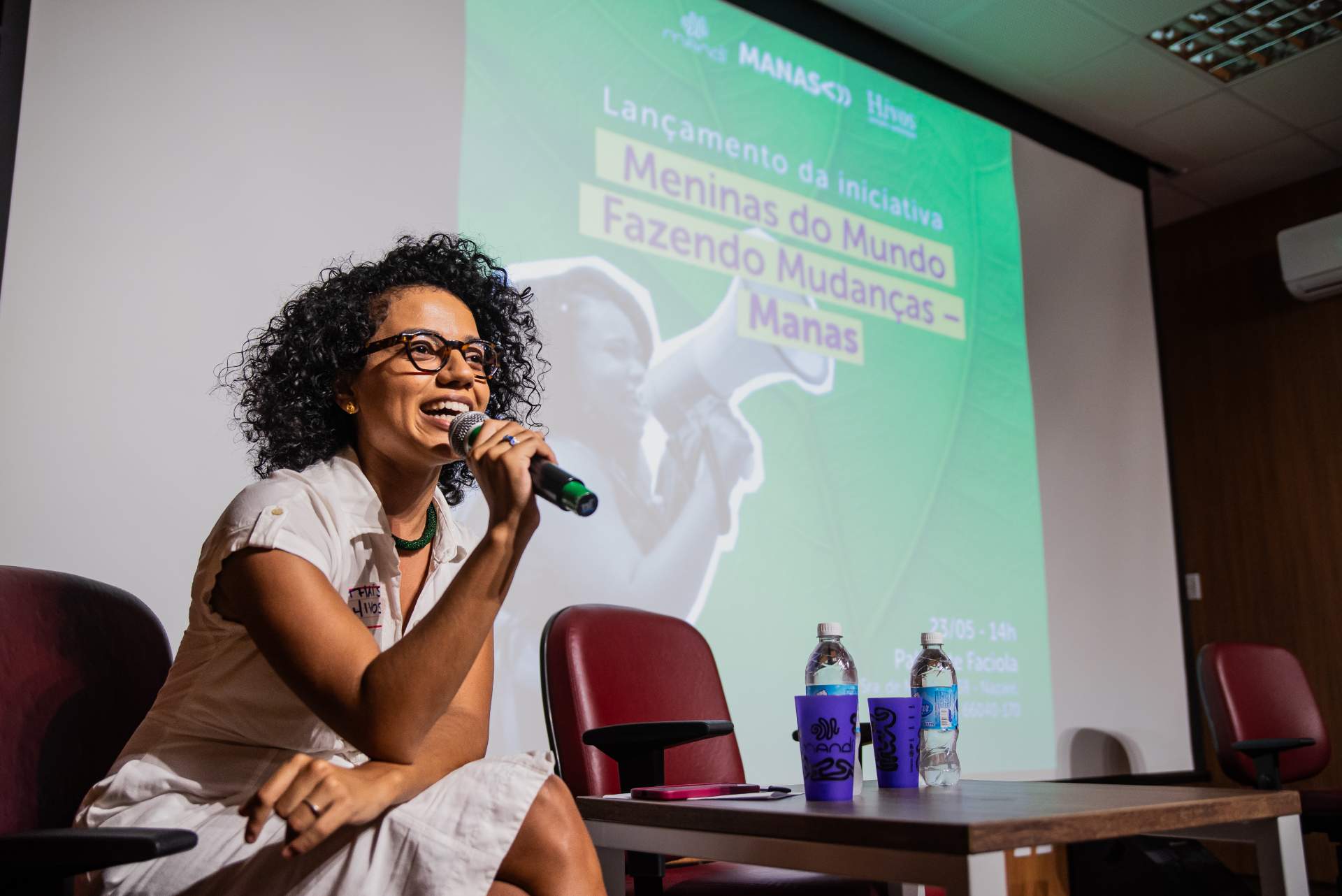
Global Girls Creating Change (G2C2)
As program manager for G2C2, Thaís uses her experience and insights to empower the next generation of women leaders. The program focuses on amplifying girls’ voices, connecting them globally, and providing them with resources to implement their ideas for climate justice. “G2C2 is thinking about how to ensure that more and more girls can be part of building solutions for their communities and the world at large,” Thaís explained.
The project connects a global network of girls working on issues of gender inequalities, race, and climate justice in Brazil, Nepal, Uganda, Indonesia, and other countries. By providing seed funding and technology tools, it empowers them to overcome barriers and take an active role in their communities. “We strengthen the leadership of girls and connect them with other girls experiencing similar problems, but who are held back from joining the movement for climate justice because they’re girls. One of the best things about the program is that it proves that if girls have the right tools, they can make the necessary changes themselves,” she stated, proudly.
The transformative power of connecting girls globally
Thaís acknowledges the challenges of implementing the project, such as gaining the trust of families and communities and breaking down stereotypes that prevent girls from taking on leadership roles. Ensuring that girls from vulnerable communities have access to training and resources is another critical concern. And getting girls from vastly different contexts who don’t speak the same language to communicate is yet another. Still, Thaís remains optimistic about the transformative power of connecting girls globally and equipping them with the tools to lead. Tools as simple as translation software and a secure digital platform can make a huge difference.
The next generation of leaders
Through collective action and unwavering dedication, Thaís and her team are not only addressing immediate needs, but also nurturing the next generation of leaders ready to tackle the world’s most pressing challenges.
Her dream for women and girls is simple, yet profound: “That they can dream their own futures and make them come true. That they have the support to do what they want and the chance to prove they can do it.” Thaís also strives to be a role model for others: “I want is to be an example for women and build bigger and bigger networks and movements of women and girls who are stepping forward to make their dreams come true.”

